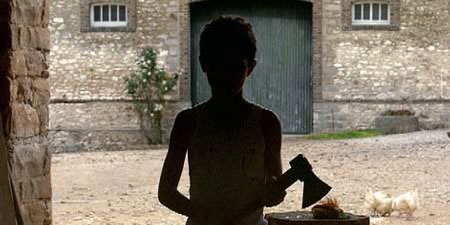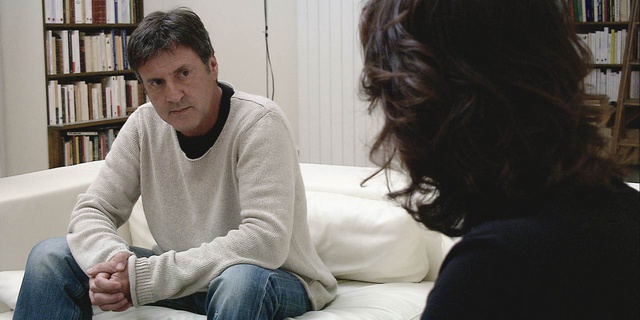“Within the next few weeks I won’t be the prime minister of this country. In all probability a Scot will become prime minister of this country and that’s someone who built one of the strongest economies in the world and who I’ve always said would make a great prime minister.” With recent tough defeats for Labor in Scotland punctuating his closing weeks, Tony Blair announces he will make an announcement tomorrow concerning his forthcoming resignation and likely replacement by Chancellor Gordon Brown. And, across the channel, France elects Nicolas Sarkozy as its new president, a conservative who’s seen as both US-friendly and Dubya-friendly. Meanwhile, E.J. Dionne wonders what recent events mean for European — and American — progressives. Update: Tony Blair announces his last day: June 27.
Tag: France
Viva Italia!
A belated congrats to Italy on winning the 2006 World Cup. I was rooting for France, and a PK shootout is a truly terrible way to choose the Cup champion, but — after headbuttgate and the Baggio mishap in 1994 — Italy seemed karmically due. At any rate, see y’all in 2010. And, now, alas, we’ve hit the sports dead zone until September…perhaps it’s time to give MLS another go, what with Red Bull United now on the pitch… Update: Zidane speaks.
The Win Done Ghana.
Well, that’s that, then. Ghana knocks the US out of the Cup with a 2-1 victory that may have hinged partly on a questionable PK. (Being in research mode, I didn’t see the game — Still, it seems like a lot of the games this Cup have swung on bad calls, and we needed a win, not a tie, regardless.) Oh well, there’s always 2010, I guess. At any rate, congrats to Ghana on getting through, and here’s hoping the Togo Sparrow Hawks can play spoiler to France tomorrow…
No Mercy Shown.
This is why events unnerve me…By way of Ed Rants, the new trailer for Sofia Coppola’s Marie Antoinette is out, and it maintains the New Order conceit of the teaser. (Although this time the background ditty is “Ceremony,” not Age of Consent.”)
Hidden Costs.

The second half of last night’s double-feature, Michael Haneke’s Cache, offered a moral universe in many ways diametrical to that of Match Point — here, even the long-buried sins of the upper crust are eventually exposed before the Great Eye. As I said in the 2005 round-up, last year was a banner year for politically-minded movies, and Cache, both an unsettling thriller of personal surveillance and a timely rumination on First World comforts and complicity in an age of terror, definitely ranks among them. With its inordinately protracted (and sometimes intentionally confusing) shots and its refusal to answer many of the questions it poses (including the plot device driving the film), Cache isn’t going to be everyone’s cup of tea, and I’m sure some will write it off as just a pretentious and inscrutable foreign film. Nevertheless, I thought Cache was well worth seeing. It’s a film that, both visually and politically, will put you ill at ease.
Cache begins with a long, steady image of a Parisian street, held throughout the very slowly typed-out credits and beyond. Well after the normal amount of time our movie-conditioned eye allots for a basic establishing shot (by now, Tony Scott would have had an embolism), the image is suddenly paused, and then rewound. As it turns out, we’ve been viewing a tape, one featuring –and sent to — the home of the Laurents, along with a scrawled picture of a child vomiting blood. (Yes, it starts like Lost Highway, but they’re very different movies.) Georges (Daniel Auteuil), the host of his own popular Charlie Rose-ish television show, is nonplussed by this bizarre tape, and his wife Anne (Juliette Binoche), a successful book agent, is driven to distraction, particularly as more cassettes (with more information) arrive, and it becomes increasingly clear that Georges has some sense of why this is happening. Soon, for the sake of his wife and 12-year-old son Pierrot (Lester Makedonsky), Georges is forced to follow the path prescribed by these strange missives, and to confront a dark moment in his past that he, his parents, and arguably his nation have purposefully forgotten.
What that dark moment is is for you to discover, although it’s one that (as political analogy — it doesn’t work quite as well in terms of straight narrative) hearkens to the French-Algerian conflict and, more broadly, the war on terror and the hidden costs and benefits of colonialism. Georges rages and fumes throughout the movie, insisting over and over that he and his family are being terrorized. But by whom, and for what? Is Georges really blameless, and, that question aside, are his responses appropriate? Some very brief flashes of didacticism aside (for example, the scene involving CNN), Cache generally posits troubling questions about national memory, the dividends of empire, and the state of the world today without telling us how to feel about them.
Another layer of unease in the film involves the aforementioned camerawork. Cache returns to that exterior view of the Laurents’ home several times, and we never know if we’re watching “just” an establishing shot or indulging in the stalker’s-eye-view. (The likely answer, a la Rear Window, is that we’re doing both.) This goes for almost every scene in the film, and the cumulative experience of “stalking” the Laurents for two hours adds to the apprehension and foreboding of Cache. We begin to feel complicit in this crime of surveillance, just as, in time, we come to feel complicit in the Laurents’ sins. (Sure, the question of “the gaze” is a hoary staple of any Film 101 class — still, Haneke manages here to move past arthouse histrionics and create something that feels genuinely creepy.)
Finally, as I said above, Cache is disarmingly open-ended, particularly by the “explain-everything-several-times” standard we’re used to. Yes, one character’s arc is made clear, I think, by his/her womb-like retreat from the world, and that maddening last shot, if you caught the action (screenshot spoilers here), does suggest a possible answer to the cassette issue. But, ultimately, the bullet-points of the thriller story aren’t all that important. The plot mechanics of Cache may remain hidden, but the unsettling impressions of guilt and complicity it leaves linger in plain sight.

Power, Corruption, and Lies.
From the Age of Consent to the Age of Revolution comes this spiffy new trailer for Sofia Coppola’s biopic of that monument of ’80’s excess, Marie Antoinette, starring Kirsten Dunst, Jason Schwartzman, and Asia Argento. Somehow, I don’t think the real Marie Antoinette had much love for (the) New Order.
Down and Out in Paris and London.
As our GOP Congress looks to shoot the messenger over secret prisons, England’s House of Commons rejects an anti-terror bill pushed by Prime Minister Blair — his “first defeat” after 8 years in office — which would allow terrorist suspects to be held for 90 days without charge. Meanwhile, France approaches the two-week mark of youth rioting, despite curfews, increased jail time, threats of deportation, and the shutdown of instigating blogs, and the rest of Europe looks on with trepidation…
Non.
As feared by EU supporters around Europe, the EU charter vote fails in France. That’s very disappointing, if not unexpected. Update: The Dutch pile on.
Amadeus Chic.
Fans of period pieces and the ultraviolence take note: Today brings our first looks at Ed Harris as Ludwig Van in Copying Beethoven and Kirsten Dunst as Marie Antoinette in Sofia Coppola’s forthcoming biopic of the Austrian princess.
Paris to the Dogs.
France’s five-star hotels appeal to canine connoisseurs. There’s zero chance of my taking Berk to Paris anytime soon, although we do occasionally trek to Taco Bell.
